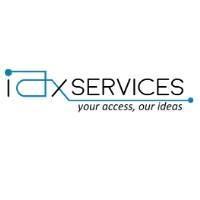Streamlining Modern Workspaces with a Room Booking System
In today’s fast-paced business world, effective management of office resources has become essential. With the growing trend of hybrid workplaces and flexible meeting schedules, a room booking system is no longer a luxury—it’s a necessity. This innovative technology simplifies the process of reserving meeting rooms, ensuring that teams collaborate more efficiently and spaces are used productively.
What is a Room Booking System?
A room booking system is a digital solution that enables employees or visitors to easily schedule and manage the use of meeting rooms or workspaces. It eliminates the confusion and inefficiencies caused by double bookings, miscommunication, or underused facilities. Through an intuitive interface, users can check room availability, reserve a time slot, and even access information like room capacity, equipment, and amenities.
These systems are typically integrated with other office tools such as email calendars, employee management software, and smart devices. This means employees can book a room directly through platforms they already use daily, such as Outlook or Google Calendar, making the process seamless and efficient.
The Need for Smarter Space Management
As companies continue to adapt to flexible working environments, managing office spaces efficiently has become a challenge. A room booking system offers a structured way to manage these spaces. It helps businesses avoid unnecessary conflicts, reduces wasted time, and ensures that every room is used effectively throughout the day.
Moreover, this technology provides valuable insights into space utilization. Managers can track how often meeting rooms are booked, identify which spaces are most popular, and even analyze booking patterns to plan better office layouts. By leveraging such data, organizations can optimize their real estate investments and reduce operational costs.
Convenience and Accessibility
One of the primary benefits of a room booking system is its convenience. Users can book meeting rooms from anywhere—whether they are in the office, working remotely, or on the go. The system updates in real time, allowing everyone to see up-to-date room availability and avoid scheduling conflicts.
In modern workplaces, many systems also integrate with interactive displays mounted outside meeting rooms. These touchscreens display live information about ongoing and upcoming meetings, allowing last-minute bookings or quick cancellations directly from the device. This smart feature saves time and prevents confusion among employees.
Enhanced Collaboration and Productivity
A well-implemented room booking system plays a crucial role in improving team collaboration. When employees can easily find and reserve suitable meeting spaces, collaboration becomes more efficient and less stressful. Teams spend less time coordinating logistics and more time focusing on meaningful discussions and project outcomes.
Furthermore, the system ensures that meeting spaces are properly equipped for different needs. For example, users can filter rooms based on available equipment such as video conferencing tools, projectors, or whiteboards. This ensures that every meeting runs smoothly with all the required resources in place.
Integration with Smart Office Technologies
Modern workplaces are increasingly adopting smart technologies to improve the overall work experience. A room booking system can integrate seamlessly with smart lighting, climate control, and occupancy sensors. When a meeting is scheduled, lights and air conditioning can automatically adjust based on the booking time. If a meeting is canceled, the system can release the room instantly for others to use.
This integration not only enhances convenience but also promotes sustainability by reducing unnecessary energy consumption. Over time, these small adjustments can contribute to significant cost savings and a greener work environment.
Building a Better Employee Experience
The modern workforce values efficiency and flexibility. A room booking system empowers employees by giving them control over their workspaces. It minimizes frustration caused by disorganization and helps foster a culture of transparency and collaboration.
For organizations, this technology represents a step toward smarter operations. It demonstrates a commitment to digital transformation and the well-being of employees by creating an environment that supports productivity and innovation.
Conclusion
A room booking system is more than a scheduling tool—it’s a key component of the modern digital workplace. By simplifying meeting management, improving resource utilization, and integrating with other smart systems, it transforms how organizations operate on a daily basis.
Whether in a corporate office, university, or co-working space, the system enhances coordination, efficiency, and employee satisfaction. As businesses continue to evolve, adopting a room booking system ensures that your workspace remains organized, dynamic, and ready for the future of work.





